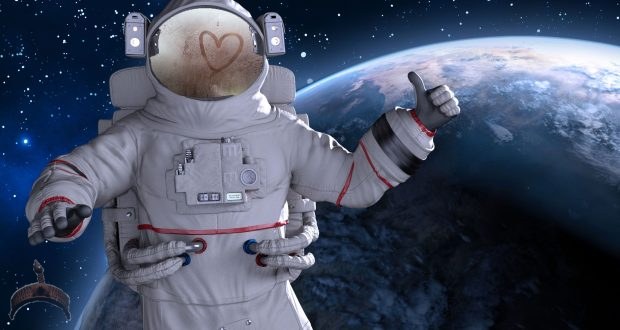Gravity can be a real downer when you are trying to grow organs.
That’s why experiments in space are so valuable. They have revealed a new perspective into biological sciences, including insights into making human tissues.Augmented reality makes these wine bottles come to lifeWho says wine labels have to be boring? This Australian winemaker developed an app that makes their labels come to life, through the magic of Augmented Reality.Volume 0%
Gravity influences cellular behavior by impacting how protein and genes interact inside the cells, creating tissue that is polarized, a fundamental step for natural organ development. Unfortunately, gravity is against us when we try to reproduce complex three dimensional tissues in the lab for medical transplantation. This is difficult because of the intrinsic limitations of bio-reactors used on Earth.
I am a stem cell biologist and interested on brain health and evolution. My lab studies how the human brain is formed inside the womb and how alterations in this process might have lifelong consequences to human behavior, such as in autism or schizophrenia. Part of that work includes growing brain cells in space.
Growing tissue and organs in the lab
To build organized tissues in the lab, scientists use scaffolds to provide a surface for cells to attach based on a predetermined rigid shape. For example, an artificial kidney needs a structure, or scaffold, of a certain shape for kidney cells to grow on. Indeed, this strategy helps the tissue to organize in the early stages but creates problems in the long run, such as eventual immune reactions to these synthetic scaffolds or inaccurate structures.
By contrast, in weightless conditions, cells can freely self-organize into their correct three-dimensional structure without the need for a scaffold substrate. By removing gravity from the equation, we researchers might learn new ways of building human tissues, such as cartilage and blood vessels that are scaffold-free, mimicking their natural cellular arrangement in an artificial setting. While this is not exactly what happens in the womb (after all the womb is also subject to gravity), weightless conditions does give us an advantage.
And this is precisely what is happening at the International Space Station.
These experiments help researchers optimize tissue growth for use in basic science, personalized medicine and organ transplantation.
But there are other reasons why we should manufacture organs in space. Long-term space missions create a series of physiological alterations in the body of astronauts. While some of these alterations are reversible with time, others are not, compromising future human spaceflights.
Studying astronauts’ bodies before and after their mission can reveal what goes wrong on their organs, but provides little insights on the mechanisms responsible for the observed alterations. Thus, growing human tissues in space can complement this type of investigation and reveal ways to counteract it.
Finally, all forms of life that we know about have evolved in the presence of microgravity. Without gravity, our brains might have evolved in a different trajectory, or our livers might not filter liquids as it does on Earth.
By recreating embryonic organ formation in space, we can anticipate how the human body in the womb would develop. There are several research initiatives going on in my lab with human brain organoids at ISS, designed to learn the impact of zero gravity on the developing human brain. These projects will have profound implications for future human colonization (can humans successfully reproduce in space?). These studies will also improve the generation of artificial organs that are used for testing drugs and treatments on Earth. Will better treatments for neurodevelopmental and neurodegenerative conditions that affects millions of people come from research in space?
This article is republished from The Conversation by Alysson R. Muotri, Professor of Pediatrics and Cellular and Molecular Medicine, University of California San Diego under a Creative Commons license. Read the original article.
 Ọmọ Oòduà Naija Gist | News From Nigeria | Entertainment gist Nigeria|Networking|News.. Visit for Nigeria breaking news , Nigerian Movies , Naija music , Jobs In Nigeria , Naija News , Nollywood, Gist and more
Ọmọ Oòduà Naija Gist | News From Nigeria | Entertainment gist Nigeria|Networking|News.. Visit for Nigeria breaking news , Nigerian Movies , Naija music , Jobs In Nigeria , Naija News , Nollywood, Gist and more









